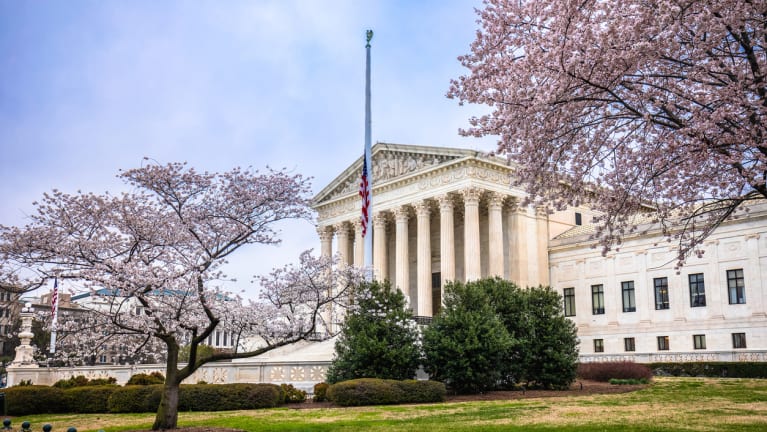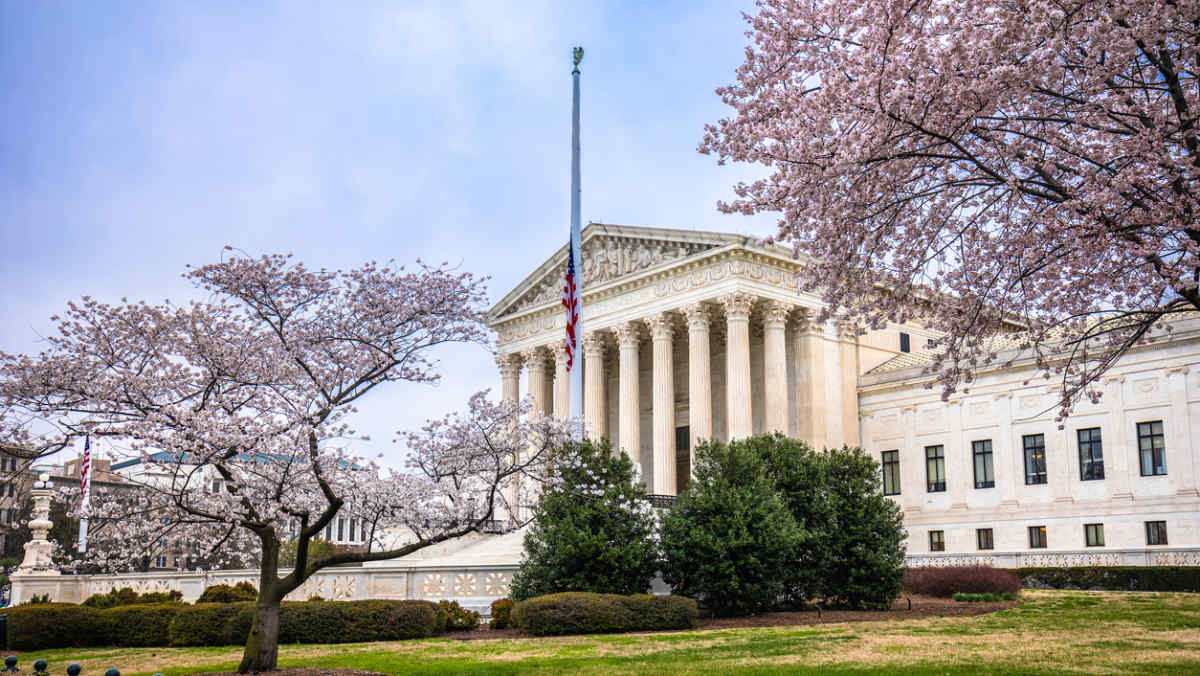

?Employers may find it easier to win legal battles against federal agencies, based on the U.S. Supreme Court’s unanimous ruling in two cases consolidated into one decision on April 14.
The two cases examined whether federal district courts can hear constitutional challenges to the Federal Trade Commission’s (FTC’s) and Securities and Exchange Commission’s (SEC’s) authority before the agency completes its own appeals process, or whether targets of these agencies must wait for a final determination from the agency before that can be appealed in federal circuit court.
“Both respondents claim that the agencies’ administrative law judges are insufficiently accountable to the president, in violation of separation of powers principles,” wrote Justice Elena Kagan for the court. “And one respondent attacks as well the combination of prosecutorial and adjudicatory functions in a single agency. The challenges are fundamental, even existential. They maintain in essence that the agencies, as currently structured, are unconstitutional in much of their work.”
The decision may impact employers and HR professionals because federal agencies including the National Labor Relations Board, the U.S. Department of Labor, the Occupational Safety and Health Administration, and the Equal Employment Opportunity Commission can bring claims against employers. In the two cases before the Supreme Court, the FTC and the SEC initiated enforcement and then, if needed, would have proceeded to a federal court of appeals. The parties here, though, sidestepped that review scheme and brought their claims in federal district court. The question the court was addressing was whether the district courts could hear those lawsuits and resolve the parties’ constitutional challenges to the agencies’ structure. The court’s answer was yes.
The court’s decision potentially makes it easier for employers to more quickly challenge a federal agency’s proceedings over the employer’s labor relations practices, wage and hour compliance, workplace safety standards, or equal employment opportunity activity. It more clearly does so with the two agencies involved in these cases, the FTC and the SEC, just as the FTC is contemplating issuing a rule banning the use of noncompete agreements and is stepping up enforcement against their use.
Two recent settlements “clearly reflect the FTC’s intent to move forward with its aggressive effort to ban noncompete agreements,” said Matt Durham, an attorney with Dorsey & Whitney in Salt Lake City.
Background
In one of the consolidated cases, the FTC investigated Axon Enterprise, a Scottsdale, Ariz.-based manufacturer of tasers and other electrical weapons, to determine whether its acquisition of a competitor violated federal antitrust laws. Axon challenged the constitutionality of the FTC’s proceedings. Axon claimed the FTC administrative proceeding violated its constitutional due process rights.
The 9th U.S. Circuit Court of Appeals ruled in favor of the FTC, concluding that the claims were the type that fell within the Federal Trade Commission Act’s review scheme. The Supreme Court reversed that decision and remanded the case to lower courts.
In the other case, a Texas accountant, Michelle Cochran, was accused of misconduct by the SEC. The agency sanctioned her and forced her to go through an administrative proceeding and the SEC appeals process. Cochran challenged the SEC in federal district court, and the 5th U.S. Circuit Court of Appeals allowed Cochran to pursue her constitutional challenge against the SEC there without first going through the agency’s administrative processes. The Supreme Court affirmed that decision and remanded the case to lower courts.
Timing Matters
When an agency begins administrative proceedings to address statutory violations, it typically delegates the adjudication to an administrative law judge with authority to resolve motions, hold a hearing and issue a decision. Both Cochran and Axon claimed the tenure protections for the agencies’ administrative law judges render them insufficiently accountable to the president, in violation of separation-of-powers principles. By statute, administrative law judges can be fired only for good cause as determined by the U.S. Merit Systems Protection Board, a quasi-judicial agency in the executive branch.
Cochran and Axon claimed an “injury from being subjected to an illegitimate proceeding, led by an illegitimate decisionmaker,” Kagan wrote. “That injury is impossible to remedy once the proceeding is over, which is when appellate review kicks in. Judicial review of the structural constitutional claims would thus come too late to be meaningful.”
The Supreme Court analyzed whether Cochran’s and Axon’s constitutional claims fit within the review authority given to the federal agencies, and it found they did not. It said the constitutional claims were not the type that agency review processes reach, so a district court can review them.
Furthermore, Justice Clarence Thomas wrote that there should be consideration of whether the agency processes “and the appellate review model they embody are constitutional methods for the adjudication of private rights.”
Gregory Garre, an attorney with Latham & Watkins in Washington, D.C., who represented Cochran, said, “We are thrilled that the Supreme Court has unanimously vindicated Michelle Cochran’s right to have her day in court to challenge the constitutionality of the administrative apparatus she has fought for nearly a decade against the SEC.”
